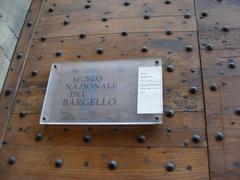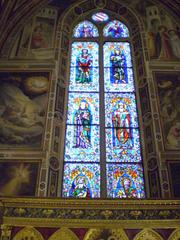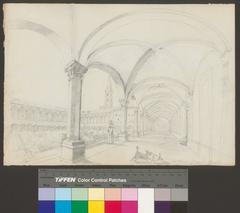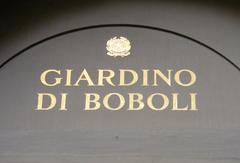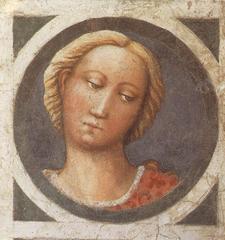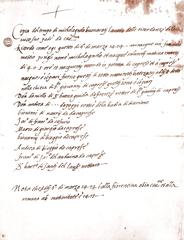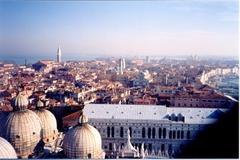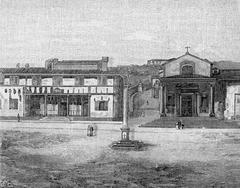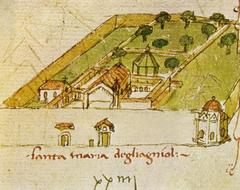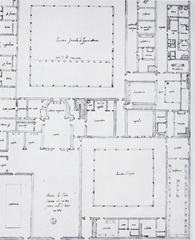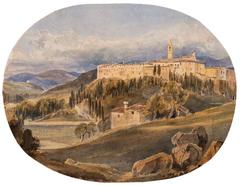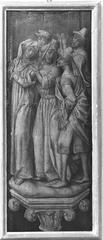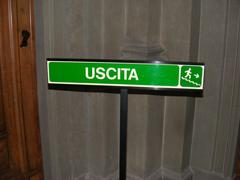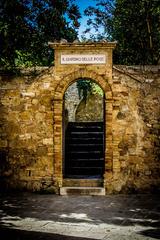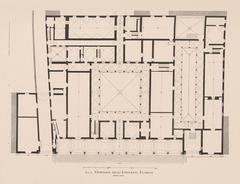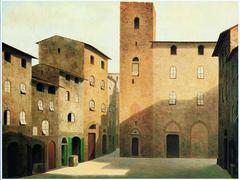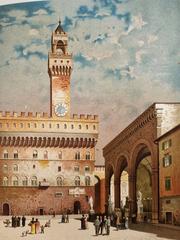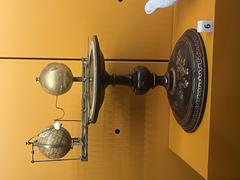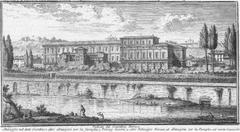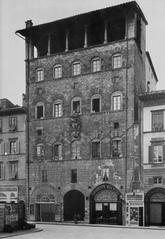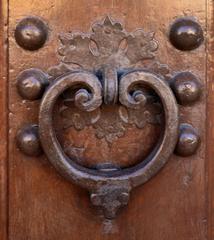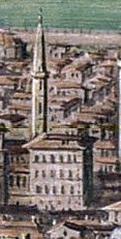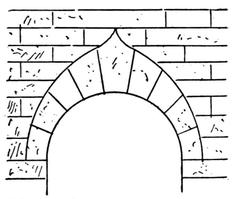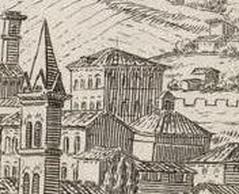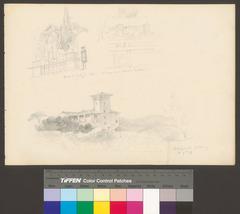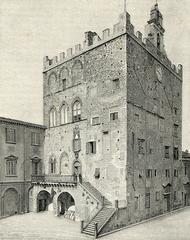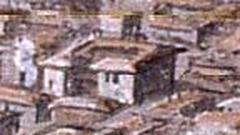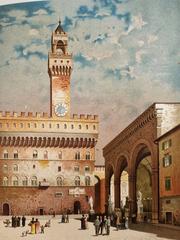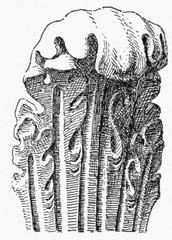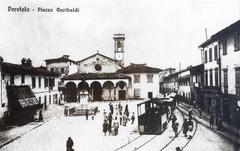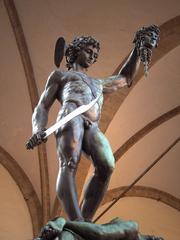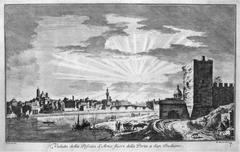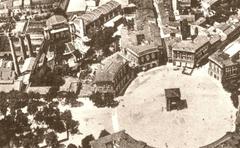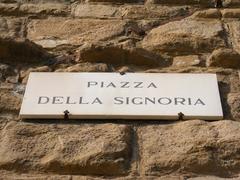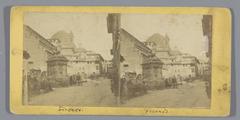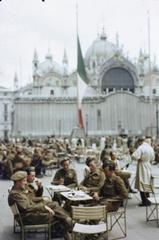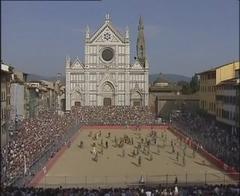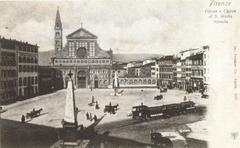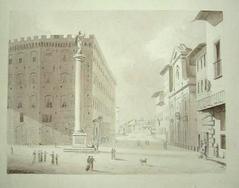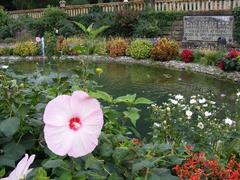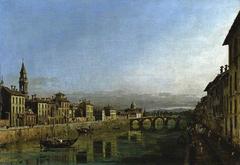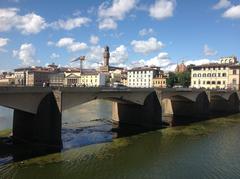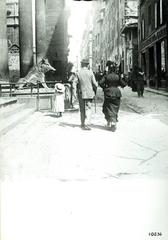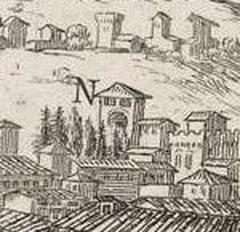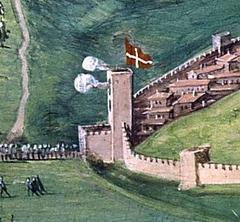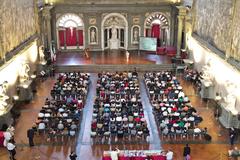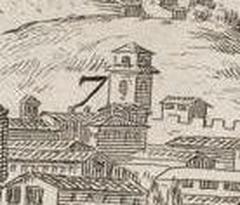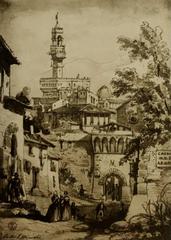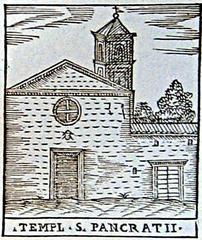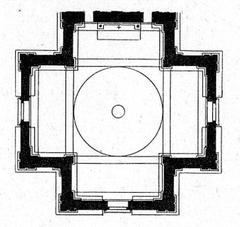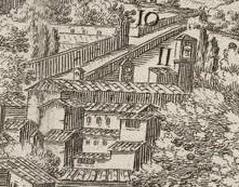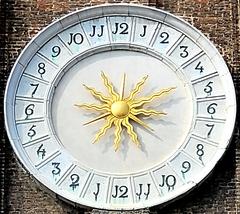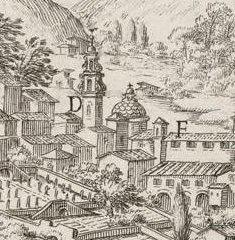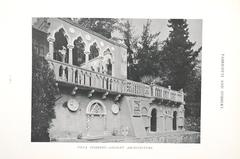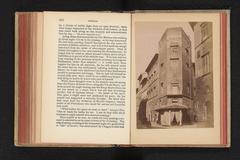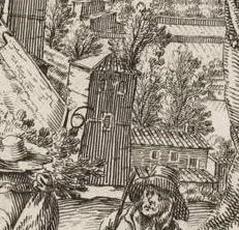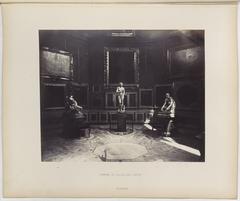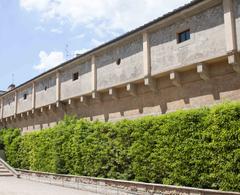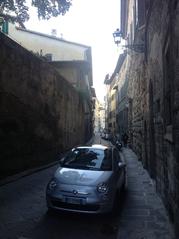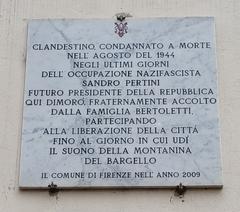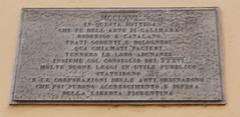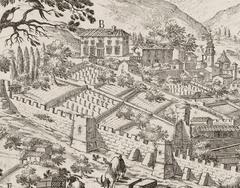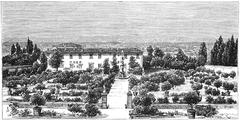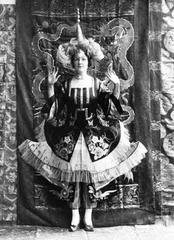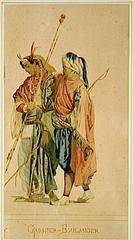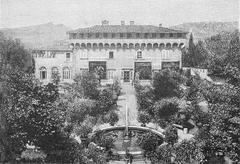Caffè Giubbe Rosse Florence: Visiting Hours, Tickets, and Historical Significance
Date: 03/07/2025
Introduction
Caffè Giubbe Rosse, located in the heart of Florence’s Piazza della Repubblica, is an enduring emblem of the city’s literary, artistic, and intellectual legacy. Since its founding in 1896 by the Reininghaus brothers, it has transitioned from a brewery into a legendary “caffè letterario,” serving as a crucible for avant-garde creativity, spirited debate, and political discourse. Revered as the birthplace of Italian Futurism and a gathering place for cultural luminaries, Caffè Giubbe Rosse is a living monument to Florence’s dynamic social fabric and its continual reinvention.
This guide offers a thorough overview of the café’s history, practical visitor information, and tips for making the most of your experience at one of Italy’s most iconic cultural landmarks (Within Florence; Why Italians; La Nazione).
Table of Contents
- Origins and Early Years
- Rise as a Literary and Artistic Hub
- The Futurist Movement and Cultural Innovation
- Notable Patrons and Intellectual Circles
- Political and Social Impact
- Literary Production and Editorial Work
- Decline, Bankruptcy, and Revival
- Present-Day Cultural Significance
- Visitor Information: Hours, Tickets, and Accessibility
- Nearby Attractions
- Special Events and Cultural Programming
- Ambience and Menu
- Practical Tips and FAQ
- Conclusion
- References
Origins and Early Years
Caffè Giubbe Rosse was established in 1896 in Piazza della Repubblica as “Fratelli Reininghaus,” a German-style brewery (getbacklauretta.com). In 1910, the café adopted the name “Giubbe Rosse” after its waiters’ distinctive red jackets, a nod to Viennese fashion and a tradition that endures today (Within Florence). The interior was revamped in the Liberty style, reflecting the flourishing artistic trends of the early 20th century.
Rise as a Literary and Artistic Hub
By the early 1900s, Caffè Giubbe Rosse transformed into a vibrant salon for Florence’s artists, writers, and thinkers. It was famously described as a “forge of dreams and passions” by Alberto Viviani (getbacklauretta.com). The café’s hospitable atmosphere fostered the exchange of radical ideas, especially during the turbulent years surrounding World War I.
The Futurist Movement and Cultural Innovation
The café emerged as the unofficial headquarters of the Italian Futurist movement. Pioneers like Filippo Tommaso Marinetti, Umberto Boccioni, Aldo Palazzeschi, and Carlo Carrà gathered here to debate, collaborate, and launch manifestos that revolutionized Italian art and literature (Within Florence). Giubbe Rosse also supported the creation of influential literary magazines such as Lacerba and Solaria, pivotal in shaping modern Italian literature (getbacklauretta.com).
Notable Patrons and Intellectual Circles
Some of the most influential figures in Italian culture were regulars at Caffè Giubbe Rosse, including:
- Filippo Tommaso Marinetti – Father of Futurism
- Umberto Boccioni – Innovator in painting and sculpture
- Aldo Palazzeschi – Poet and novelist
- Carlo Carrà – Painter and key figure in Futurism
- Giovanni Papini – Writer and co-founder of Lacerba
- Eugenio Montale – Nobel laureate poet
- Ardengo Soffici – Writer and critic
- Giuseppe Prezzolini – Journalist and intellectual
Their presence solidified the café’s reputation as an incubator for new artistic and political ideas (getbacklauretta.com).
Political and Social Impact
Beyond its artistic influence, Giubbe Rosse was a center for political discussion, especially during the rise of Fascism and the anti-fascist resistance. It became a symbol of creative freedom and political engagement, maintaining its role as a forum for dialogue through periods of societal upheaval (The Free Library).
Literary Production and Editorial Work
Throughout the 20th century, the café functioned as headquarters for various literary magazines. Writers and editors convened here to plan, write, and edit content that would shape Italian intellectual discourse (Within Florence).
Decline, Bankruptcy, and Revival
Despite its storied past, Caffè Giubbe Rosse faced severe financial challenges, culminating in bankruptcy in December 2018 with debts exceeding €3.5 million (getbacklauretta.com). The café was auctioned in March 2019, with legal protections ensuring the preservation of its name and literary function (Within Florence).
In 2019, the Ministry of Culture designated it a protected cultural asset, mandating the conservation of its historical interiors, furnishings, and atmosphere (Wikipedia; La Nazione). Restoration and ownership transitioned to Scudieri International Srl. and FaroAlto, who invested over €2 million to revitalize the café, carefully preserving original features and décor (Magenta Florence; Firenze Today).
Present-Day Cultural Significance
Caffè Giubbe Rosse remains a beacon of Florentine culture. Its 2024 reopening marked a new chapter in its legacy, reaffirming its status as a hub for artists, writers, and intellectuals (La Nazione). Today, the café blends tradition with innovation, hosting regular literary events, art exhibitions, and public discussions, while preserving its historic character and unique ambiance (Florence is You).
Visitor Information: Hours, Tickets, and Accessibility
Visiting Hours:
Generally open daily from 8:00 AM to midnight, with lunch service from 12:00 PM–3:00 PM and aperitivo from 6:00 PM–8:00 PM (Giubbe Rosse Official). Check the official website for seasonal updates.
Tickets:
Admission is free. Purchases are expected for food or drink. Some special events or exhibitions may require advance reservation or a nominal fee.
Accessibility:
The café is wheelchair accessible and equipped with accessible restrooms. Staff are trained to assist visitors with mobility needs.
Location:
Piazza della Repubblica, Florence, Italy—within easy walking distance of the Duomo, Uffizi Gallery, and Palazzo Vecchio.
Getting There:
Accessible on foot from major landmarks. Public transport stops and taxi services are nearby.
Nearby Attractions
Enhance your visit by exploring other Florence historical sites:
- Piazza della Repubblica – The vibrant central square.
- Florence Cathedral (Duomo) – Iconic Renaissance architecture, 5 minutes’ walk.
- Uffizi Gallery – World-renowned art museum, about 10 minutes away.
- Palazzo Vecchio – Florence’s town hall and civic symbol.
- Museo Novecento – Modern Italian art museum.
More recommendations can be found on Mugello Tuscany’s Florence café guide.
Special Events and Cultural Programming
Giubbe Rosse regularly hosts literary readings, book launches, art exhibitions, and debates. For example, recent programs included discussions celebrating Mario Luzi and Pier Paolo Pasolini (La Nazione).
Check the official website or social media for current schedules.
Ambience and Menu
The interiors showcase Liberty-style décor, marble-topped tables, and historic photographs (The Florentine).
Menu highlights include:
- Classic Tuscan dishes such as ribollita and pappa al pomodoro
- Fresh pastries and Italian coffees for breakfast
- Panini, salads, pasta, and Florentine steak
- Curated Italian wines, cocktails, and classic aperitifs like Negroni and Amaro
- Vegetarian and gluten-free options available
Prices reflect the café’s central location and heritage: €3–€5 for coffee, €8–€15 for light fare, €20–€35 for main courses (Tripadvisor Reviews).
Practical Tips and FAQ
Dress Code:
Smart-casual is recommended, especially in the evening.
Reservations:
Not required for individuals or small groups, but suggested for large parties, lunch, or special events.
Wi-Fi & Facilities:
Free Wi-Fi and air conditioning. High chairs and children’s menus are available. Pets welcome outdoors.
Photography:
Permitted—be respectful during busy periods.
Q: What are the opening hours?
A: Typically 8:00 AM–midnight. Check for seasonal variations.
Q: Do I need a ticket or reservation?
A: No ticket required; reservations are advisable for groups or events.
Q: Is it accessible for wheelchair users?
A: Yes, including accessible restrooms.
Q: Are pets allowed?
A: Yes, in the outdoor seating area.
Q: Can I attend cultural events?
A: Yes—most are free with a purchase, but check for special requirements.
Conclusion
Caffè Giubbe Rosse is more than a café: it is a living chronicle of Florence’s artistic and intellectual journey. Its Liberty-style interiors, storied clientele, and vibrant programming invite visitors to immerse themselves in the creative spirit that has defined Florence for over a century. Whether savoring Tuscan cuisine, attending a literary reading, or simply soaking in the atmosphere, Giubbe Rosse offers a memorable, authentic experience among Florence’s historical sites.
Plan your visit in line with current operating hours, consider reservations for meals or events, and explore the surrounding landmarks to fully appreciate this iconic monument to Italian culture (La Nazione; Within Florence; Why Italians).
References
- Caffè Giubbe Rosse: A Historic Literary Café and Must-Visit Florence Historical Site, getbacklauretta.com
- Visiting Giubbe Rosse: Hours, Tickets, and Its Role Among Florence Historical Sites, Why Italians
- Caffè Giubbe Rosse Visiting Hours, Tickets, and History: Your Guide to Florence’s Iconic Literary Café, Within Florence
- Caffè Giubbe Rosse Visiting Hours & Guide: Experience Florence’s Historic Café and Nearby Attractions, Giubbe Rosse Official
- Giubbe Rosse tra Luzi, Pasolini e le nuove sfide del presente, La Nazione
- The Giubbe Rosse Cafe in Florence a literary and political alcove, The Free Library
- Caffè Giubbe Rosse reopening and restoration news, La Nazione
- The Caffè Giubbe Rosse returns to Florence, Magenta Florence
- Florence Caffè Giubbe Rosse Reopens, Wanted in Rome
- Caffè Giubbe Rosse on Wikipedia
- Firenze Today – Riapertura Ristorante Caffè Giubbe Rosse
- The Florentine – Giubbe Rosse Florence Reopens
- Tripadvisor – Caffè Giubbe Rosse Reviews
- Restaurant Guru – Caffè Giubbe Rosse Florence
For curated audio tours and more insights into Florence’s cultural treasures, download the Audiala app or follow us on social media for the latest updates.
